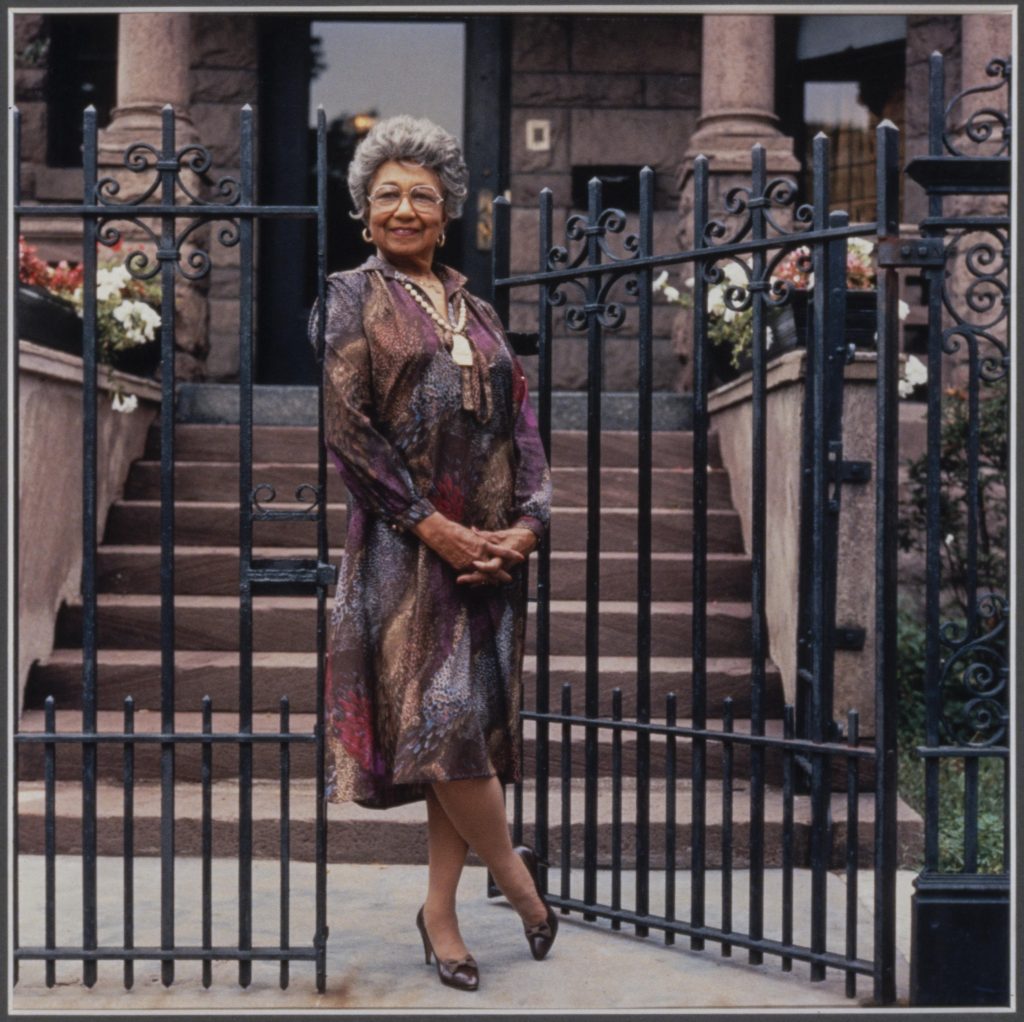History will remember Etta Barnett as one of the most dynamic performers and an inspiration for Black artists.

By Jess Bugg, Photo courtesy of Michigan Quarterly Review
While many remember the actress, singer and humanitarian Etta Moten Barnett as a Chicago icon, her roots are planted firmly in Texas. Born in 1901 in the town of Weimar, located halfway between San Antonio and Houston, Barnett was the only child of a Methodist minister and a school teacher. She first started singing as a child in her father’s church choir. By her teens, she was already a gifted performer.
Barnett’s parents put great importance on education. (Both had attended college themselves.) In 1931, she earned her B.A. in voice and drama from the University of Kansas. She was one of a few Black students at the university and graduated at the age of 30. From her first marriage (as a teenager) she also had three daughters. This made her an unconventional student in every way. Yet overall her experience was positive, and she remained an active alumnus of the university. The dean of the performing arts school even encouraged Barnett to pursue a Broadway career where she quickly gained notoriety. After some success in New York, Barnett tried her luck in Hollywood. While she may not have been a household name, her work in Hollywood was a remarkable achievement, especially given the lack of roles for African-American women at the time.
Etta Barnett: Dynamic Performer
She had roles in Flying Down to Rio, Gold Diggers of 1933 and Ladies They Talk About, among others. She also performed alongside Ginger Rogers, Fred Astaire and Duke Ellington. According to the Michigan Quarterly Review, First Lady Eleanor Roosevelt was so moved by one of Barnett’s performances, she invited her to the White House to perform for the president. A gesture that was seen as a step toward dismantling the segregationist policies put in place by Woodrow Wilson.
George Gershwin initially had Barnett in mind for the role of Bess in his opera Porgy and Bess. However, Gershwin wrote the part for a soprano. As Barnett was a contralto, she did not receive the part. When the epic was later adapted for smaller-scale performances Barnett took on the role of Bess, which became her most iconic work. Porgy and Bess is still one of the best-known and frequently performed operas today. Barnett stopped performing in 1952 due to vocal issues likely caused by singing outside of her vocal range for the role of Bess. But rather than simply retire from what would have been a remarkable career, Barnett began a new career. Shifting her focus to civic organizations and cultural missions.
Activism & Legacy
Barnett’s second husband was Claude Albert Barnett, the head of the Associated Negro Press in Chicago. The couple toured West Africa together, and she fell in love with African art and textiles. She was soon appointed the U.S. representative to 10 African nations. Etta Barnett even interviewed Dr. Martin Luther King Jr. in Accra, Ghana, where they were attending a celebration of Ghana’s independence from Great Britain.
In the 1950s and ’60s, Barnett hosted a radio show called I Remember When. The program covered a wide range of cultural topics. Many of the recordings are still available at the Library of Congress. Barnett sat on the boards of the Urban League, the Lyric Opera of Chicago and the DuSable Art Museum. She lectured on African-American music and African art and was considered an expert on the medium of terra cotta. Barnett also received numerous honorary degrees.
Barnett’s granddaughter, who had an interest in Buddhism, taught Barnett about meditation. In her final years, Barnett started practicing regularly. Barnett lived to be 102 years old. At her funeral a Buddhist chant ceremony was performed. Her friend Harry Belafonte said of Barnett, “She gave Black people an opportunity to look at themselves on a big screen as something beautiful when all that was there before spoke to our degradation. In her we found another dimension to being Black in our time. She is a true shining star.” Etta Barnett’s legacy still resonates today. The world remembers her for paving the way for so many women of color in the arts.


